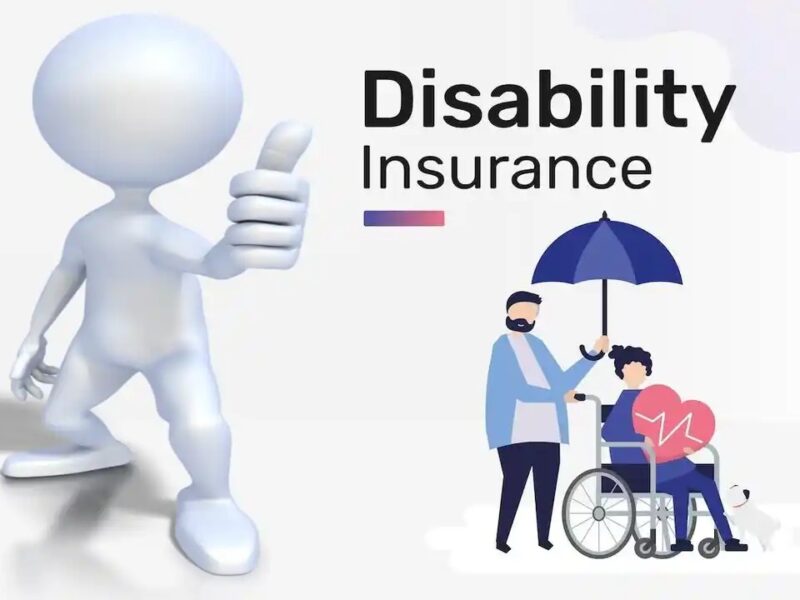Types of Disability Insurance
When it comes to disability insurance, it’s not a one-size-fits-all situation. Understanding the types can help you choose the right coverage for your needs.
Short-Term Disability Insurance
Short-term disability insurance typically covers you for a few months if you become temporarily disabled. This type of policy is ideal for conditions that might prevent you from working for a short period, such as surgery recovery or a serious illness. The benefits usually kick in after a waiting period, which could range from a few days to a couple of weeks and provide a percentage of your income until you can return to work.
Long-Term Disability Insurance
Long-term disability insurance, on the other hand, is designed for more severe, long-lasting disabilities that could prevent you from working for a year or more. This type of insurance provides benefits for an extended period, potentially until retirement age, depending on the policy. It often comes with a longer waiting period before benefits begin, but it offers a more extended safety net for those who need it.
How Disability Insurance Works
Disability insurance operates on a straightforward principle: if you become unable to work due to a disability, the insurance company pays you a portion of your lost income. Here’s a breakdown of how it typically works:
- Application Process: To get disability insurance, you’ll need to apply and provide information about your health and occupation. The insurer will assess your application and determine your premium based on your risk profile.
- Premium Payments: You pay regular premiums, which can be monthly or annually. The amount you pay is influenced by factors like your age, occupation and coverage amount.
- Waiting Period: Once you become disabled, there’s usually a waiting period before benefits kick in. For short-term disability insurance, this period might be just a few days, while for long-term disability, it could be several months.
- Benefit Payments: After the waiting period, you’ll start receiving benefits. These payments are typically a percentage of your pre-disability income, often ranging from 50% to 70%.
- Duration of Benefits: The duration for which you receive benefits depends on the type of policy you have. Short-term disability insurance might cover you for a few months, while long-term disability insurance could continue for years or until you reach retirement age.
Top Companies Offering Disability Insurance
Choosing the right insurer is crucial. Here are some top companies known for their disability insurance offerings:
1. MetLife
MetLife is a prominent player in the disability insurance market. They offer both short-term and long-term disability insurance with various customization options. Their policies are known for their comprehensive coverage and flexible terms.
2. Guardian Life
Guardian Life is well-regarded for its strong financial stability and customer service. They provide a range of disability insurance products, including options for both individual and group policies. Their policies often come with features like partial disability benefits and cost-of-living adjustments.
3. Prudential
Prudential is another top contender, offering a variety of disability insurance plans. Their coverage is known for its breadth and the ability to tailor policies to individual needs. Prudential also provides robust support and resources to help policyholders through the claims process.
4. Unum
Unum is recognized for its extensive range of disability insurance products. They offer short-term and long-term coverage with customizable options. Their policies often include features like rehabilitation benefits and return-to-work services.
Advantages of Disability Insurance
Disability insurance offers numerous benefits, making it an essential consideration for many people.
Income Protection
The primary advantage of disability insurance is income protection. If you’re unable to work due to a disability, this insurance helps replace a portion of your lost income, ensuring you can still pay bills and maintain your standard of living.
Peace of Mind
Knowing you have disability insurance provides peace of mind. You don’t have to worry about how you’ll manage financially if you’re unable to work, allowing you to focus on your recovery.
Customizable Coverage
Disability insurance policies can often be customized to fit your specific needs. You can choose coverage levels, waiting periods and benefit durations that align with your personal and financial situation.
Disadvantages of Disability Insurance
While disability insurance has many advantages, it’s important to be aware of its potential downsides.
Cost
Disability insurance can be expensive, especially if you opt for comprehensive coverage. Premiums can vary based on factors like age, occupation and health status, making it a significant financial commitment.
Complex Terms
The terms and conditions of disability insurance policies can be complex. Understanding the fine print, including waiting periods, benefit amounts and exclusions, can be challenging and may require careful review.
Coverage Limitations
Not all disabilities are covered under every policy. Some policies might exclude certain conditions or have specific criteria that must be met before benefits are paid. It’s crucial to read the policy details thoroughly to understand what is and isn’t covered.
What You Need to Know
Before purchasing disability insurance, there are several key factors to consider:
Assess Your Needs
Evaluate your financial situation and determine how much income replacement you might need. Consider your current expenses, any existing savings and other sources of income or insurance.
Compare Policies
Different insurers offer various policies with distinct features. Compare coverage options, premiums, waiting periods and benefit durations to find a policy that best suits your needs.
Understand the Terms
Carefully review the policy terms and conditions. Pay attention to the definitions of disability, waiting periods, benefit amounts and any exclusions. Make sure you fully understand what’s covered and any limitations.
Seek Professional Advice
Consulting with a financial advisor or insurance agent can be beneficial. They can help you navigate the complexities of disability insurance and choose a policy that aligns with your financial goals and risk tolerance.
Disability insurance is a vital tool for protecting your income and ensuring financial stability in the event of an illness or injury that prevents you from working. By understanding the types of disability insurance, how it works and the top companies offering these services, you can make an informed decision about your coverage needs. While there are costs and complexities involved, the peace of mind and financial protection it provides can be invaluable. As with any insurance, taking the time to research and understand your options will help you secure the best possible coverage for your situation.
FAQs
How much does disability insurance cost?
The cost of disability insurance depends on several factors, including your age, occupation, health status and the level of coverage you choose. Premiums can vary widely, so it’s important to shop around and compare different policies to find one that fits your budget and needs.
What is the waiting period for disability insurance benefits?
The waiting period, also known as the elimination period, is the time you must wait before disability benefits begin. For short-term disability insurance, this period might be just a few days to a couple of weeks, while long-term disability insurance typically has a waiting period of several months.
What does disability insurance cover?
Disability insurance generally covers income replacement for a percentage of your lost wages due to a disability. Coverage specifics can vary by policy, but it typically includes conditions that prevent you from performing your job duties or any occupation depending on the policy type.
Are there exclusions in disability insurance policies?
Yes, disability insurance policies often have exclusions. Common exclusions include pre-existing conditions, certain types of disabilities (like those resulting from self-inflicted injuries) and specific high-risk activities or occupations. It’s crucial to read the policy details carefully to understand what is and isn’t covered.
Can I buy disability insurance on my own?
Yes, you can purchase disability insurance individually from insurance providers or brokers. Many employers also offer group disability insurance as part of employee benefits. Individual policies might offer more customization options, while group policies are typically less expensive but might have more limited coverage.
How long do disability insurance benefits last?
The duration of disability insurance benefits depends on your policy. Short-term disability insurance benefits generally last from a few weeks to a year, while long-term disability insurance can provide benefits for several years or until you reach retirement age, depending on the policy terms.
How do I file a claim for disability insurance?
To file a claim for disability insurance, you typically need to provide documentation of your disability, including medical records and a detailed explanation of how the disability affects your ability to work. Contact your insurance provider to initiate the claim process, follow their instructions and provide all required information to ensure a smooth claims experience.





